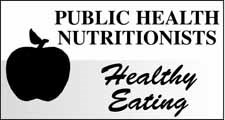Whether you are buying a home or setting up a business, location matters. But does location matter to our health? Yes, research has shown that people who live in disadvantaged communities have poorer health.
One way location can impact your health is by influencing where you buy your food. It can also affect the quality of food you can buy. The availability and quality of food are all parts of food security. Food security means that all people at all times have enough money for safe, nutritious and acceptable food. Being food secure also means having enough food for an active and healthy life. However, there are households, communities and even countries that are not food secure.
Not having healthy food easily available in a community is a concern. Without access to grocery stores, communities may become "food deserts". A food desert is an area where food is not easily available, too expensive or unhealthy. Food deserts usually exist in disadvantaged neighbourhoods or rural communities. This means the people with the fewest resources have to travel the farthest to buy healthy food.
Researchers in the United States, Canada and even Saskatchewan have examined food deserts. In 2009, the first national study of food deserts in the U.S. found that 23.5 million people live in food desert areas. Research in the city of Saskatoon found that food deserts exist more locally as well. Lack of access to food impacts all types of communities.
It comes back to location. Think about the location of grocery stores in your city or town. Can everyone in the community easily access healthy foods? If not, it's time to raise awareness about the crisis of food availability and quality in your community. Consider the questions: Should grocery stores be an essential service like schools and fire stations?
Are there tax funds available for grocery stores to set up in disadvantaged communities?
Everyone needs to work together to address food security. Learn more about local by-laws or policies in your community. Speak to local government leaders and business owners about the situation. Connect with others who are interested in food security and food deserts by visiting the web-sites www.foodsecuresaskatchewan.ca or www.fooddesertmonth.org. You can make a difference in your community by addressing the problem of food deserts.
Written by the Public Health Nutritionists of Saskatchewan and supported by Public Health, Sunrise Health Region.
If you have any comments or questions please contact: Heather Torrie, Public Health Nutritionist, Sunrise Health Region, 150 Independent Street, Yorkton, Sask. S3N 0S7 or phone: 786-0600.




